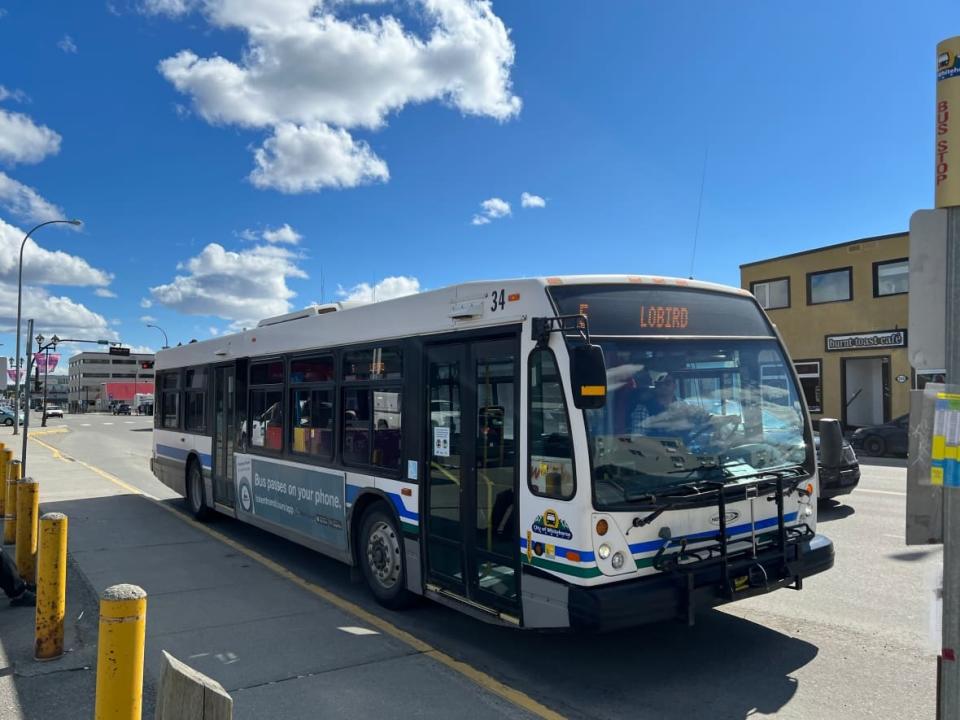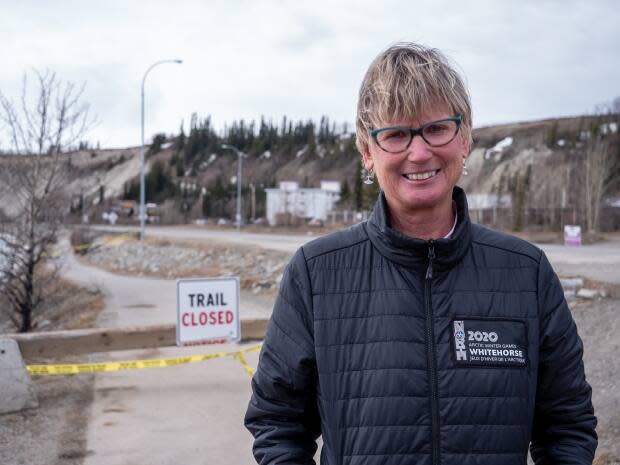Everyone rides for free, as Whitehorse council waives bus fares until July

Whitehorse public transit will be free for riders for the next six weeks, as the city looks to encourage more people to leave the car at home.
City councillors on Tuesday afternoon voted unanimously in favour of a bylaw amendment to waive all transit fees, Handy Bus included, starting Wednesday, until at least July 1.
Mayor Laura Cabott has been urging Whitehorse residents to find different ways, and times, to get into the city's downtown since an April 30 landslide blocked one of two main thoroughfares into downtown. A section of Robert Service Way is expected to remain closed to traffic for another three weeks.
That means commuters to the downtown have been forced to rely on Two Mile Hill, causing traffic back-ups at busy times.
"The fact of the matter is, there's limited things that we can do in order to deal with congestion," Cabott said when the transit bylaw amendment was tabled.

Councillors were eager to get on board with the idea. Nobody suggested it was anything but good and welcome.
"I think this is a great opportunity for community members to use the transit," said Coun. Mellisa Murray.
"To my way of thinking, it doesn't get better than this," said Coun. Kirk Cameron.
A single bus fare right now in Whitehorse is $2.50. City staff estimate the new initiative will cost the city about $50,000 to $60,000 in lost revenues, to be covered by the city's reserves.
Some councillors want to track ridership to see what the difference is when transit is free. Coun. Ted Laking suggested that a case might be made to carry on beyond July 1.
"If we do come back with the evidence that this in fact does work at reducing congestion, reducing greenhouse gases, getting more people on to the buses ... perhaps we could make a case to the federal government that this would in fact, be a climate change investment, to help offset these lost revenues going forward," Laking said.

 Yahoo Movies
Yahoo Movies 